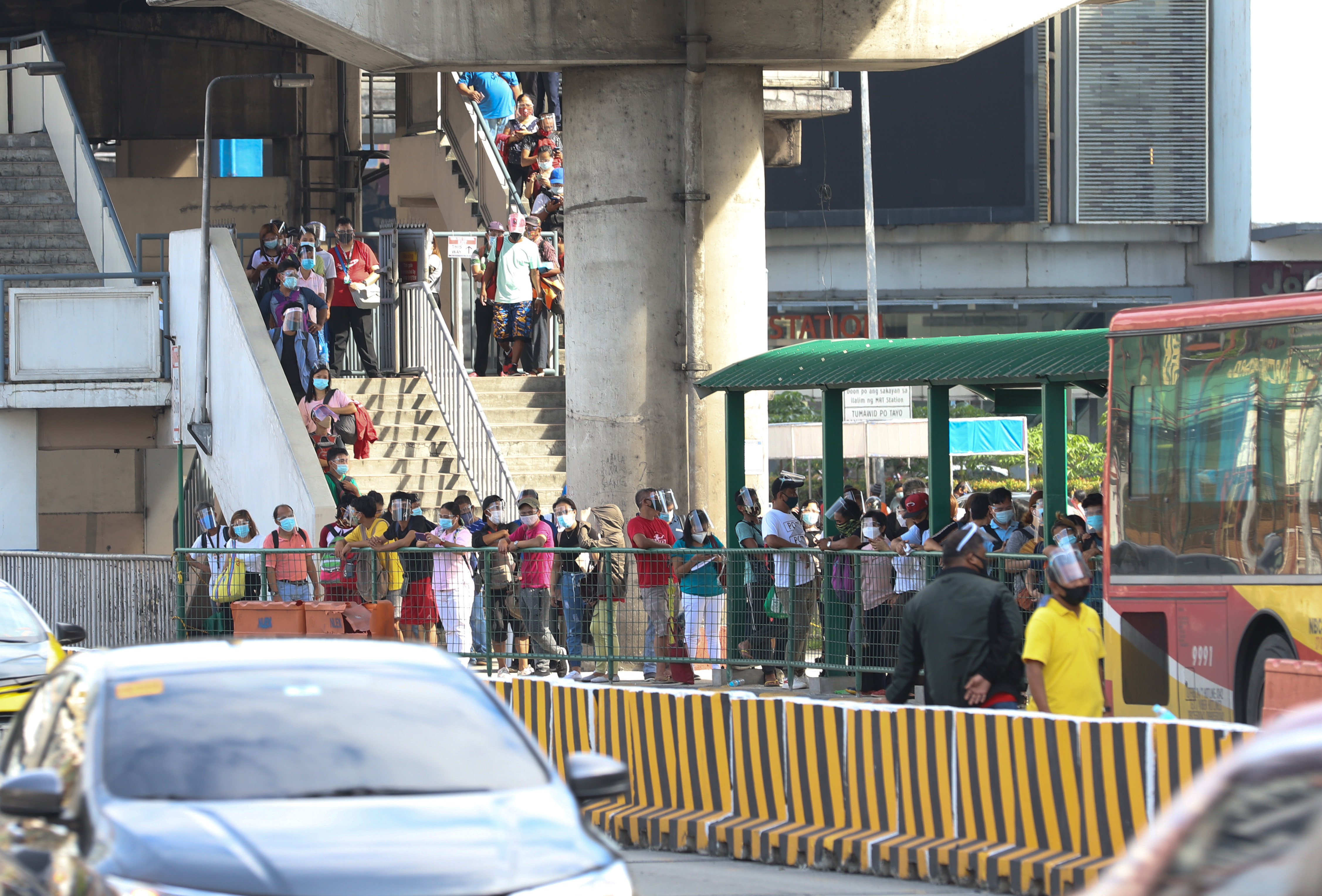News
Medical experts support less distancing in public transport

FILE: LONG QUEUE. Commuters waiting for the next bus reach the stairs of the Metro Rail Transit Line 3 North Avenue station in Quezon City on Monday (Sept. 14, 2020). Though more buses were allowed to resume operation under less strict general community quarantine in Metro Manila, daily commuters still have to endure long queues due to limitation of passengers in public utility vehicles. (PNA photo by Robert Oswald P. Alfiler)
MANILA – A group of medical experts and government health officials on Tuesday expressed support to the easing of physical distancing in public transportation, noting that other health measures allow for its gradual reduction.
The group, led by former Department of Health (DOH) secretary, Dr. Manuel Dayrit said while the World Health Organization (WHO) recommends a one-meter distance in public transportation, a gradual reduction to 0.5 meter or lower is feasible with the help of other health policies.
“We believe the evidence shows physical distancing can be maintained below one meter, so long as other health measures are also implemented,” the group said in a statement.
To allow for this gradual easing of distancing in public transport, it advocated for the strict implementation of the “seven commandments” in public transportation against possible transmission of the coronavirus disease (Covid-19).
These include the wearing of proper face masks, wearing face shields, no talking and eating, adequate ventilation, frequent and proper disinfection, no symptomatic passengers, and appropriate physical distancing.
“We believe that the combination of these measures will be amongst the most comprehensive in the world, based on our consultation with international experts,” the group said.
It cited a study from Duke University that shows a 99-percent reduction of droplet transmission through the use of surgical masks, while not talking can reduce droplet counts up to four times.
It also said a meta-analysis published by The Lancet on June 22, 2020, showed that face masks and face shields can independently reduce the chance of viral transmission by up to five-fold or three-fold.
“In China, Japan, Korea, Singapore, Taiwan, Vietnam, and other countries, passengers wear face masks while sitting side-by-side in trains, while Covid-19 cases remain manageable,” the group said.
If strictly enforced and independently monitored during implementation, it said the seven commandments could result in further easing of quarantine rules, possibly doubling or tripling the current public transport capacity “without compromising public health.”
It noted that the negative effects of a prolonged economic recession caused by strict quarantine measures are more “devastating than the manageable risks” to public health.
“We believe that there is a way forward that carefully balances a careful reopening of public transport capacity, with public health, while allowing purposeful flexibility to re-adjust measures based on actual and evolving data from the ground,” the group said.
The statement was signed by six other health experts — Dr. Vicente Belizario Jr., dean of the College of Public Health of the University of the Philippines (UP) Manila; Dr. Teodoro Herbosa, special advisor of the National Task Force against Covid-19 and former DOH undersecretary; Dr. Michael Hernandez, chair of the Environmental and Occupational Health department of UP Manila; Dr. Manuel Francisco Roxas, director of the Philippine College of Surgeons Cancer Commission; Dr. Esperanza Cabral, DOH former secretary; Dr. Maria Dominga Padilla, founder and chief executive officer of Eye Bank Foundation of the Philippines; and Dr. Rontgene Solante, an infectious disease specialist.





















